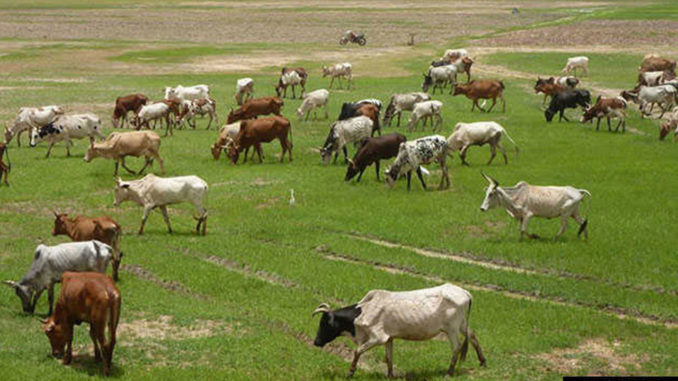
What appears to be a clearer understanding by the Buhari administration in its effort to tackle the escalating herdsmen/farmers clashes and the resultant bloodbath across the country is unfolding with the disclosure that the Federal Government plans to set up cattle ranches in some states. This effectively cancels the earlier proposal by the Minister of Agriculture and Rural Development, Chief Audu Ogbeh, that government was putting everything in place to establish cattle colonies in 16 states.
According to reports, the Federal Government and states have agreed to set up cattle ranches in 10 states — Adamawa, Benue, Ebonyi, Edo, Kaduna, Nasarawa, Oyo, Plateau, Taraba and Zamfara to end herders, farmers’ crisis in the country. The 10 states are in the first phase of the national ranching project.
The disclosure was made in Abuja at the unveiling of the National Economic Council’s National Livestock Transformation Plan as part of efforts to end clashes between farmers and herdsmen. While presenting the plan, the Secretary of the NEC Sub-Committee, Dr. Andrew Kwasari, said the Federal Government and states would spend N70 billion in the first three years of the pilot phase of the programme. He also said that N179 billion would be spent over a period of 10 years on the national livestock implementation. NEC, had in January, set up a committee headed by the Vice-President, Prof. Yemi Osinbajo, to look into herdsmen and farmers’ clashes.
The sudden U-turn by government shows that there was no thinking through before Ogbeh’s announcement. It needs to be stressed that what we are dealing with borders on people, livestock, agriculture, livelihood system and of course land. We are not dealing with politics per se, even though, there are those who think that the rapid encroachment of Fulani herdsmen into Southern Nigeria lands has political undertone.
This, notwithstanding, any attempt to solve the problem from the prism of politics rather than the globally accepted way of handling cattle farming vis-à-vis the intervening factors of people, land, etc, would be counterproductive. It won’t work. This is why government should first thoroughly examine all the issues pertaining to ranching in a manner that is devoid of sentiments and emotions, except there is a hidden agenda. There are global best practices pertaining to ranching that should be adhered to for it to be sustainable. Otherwise, if government cuts corners to establish ranches by executive fiat, they may not be sustainable. In the United States and South America from where the idea of ranching originated, there are ranches that have been in existence for hundreds of years and still running. There should be thorough feasibility study including impact assessment before setting up any ranch.
Having said that, now that government appears to have seen reason why ranching instead of cattle colony is the way to go, which is the globally accepted and modern method of beef cattle production, what are the critical issues to be considered? It won’t be all that simple or easy, so to say, for government to rush to implement what it calls the “National Ranching Project” to avoid creating more problems that were intended to be solved. There is nowhere in the world where such a national ranching project exists. Worldwide, ranches are owned by companies and private concerns and not by government. Not even the issue of funding is done by government. The same way a company may decide to establish a rubber or palm plantation is the same way another company or private investor may decide to establish a ranch. It is purely a business enterprise that pays tax to government and not the other way round. For the purpose of illustration, I will highlight two factors that are critical in establishing a cattle ranch.
END

Be the first to comment